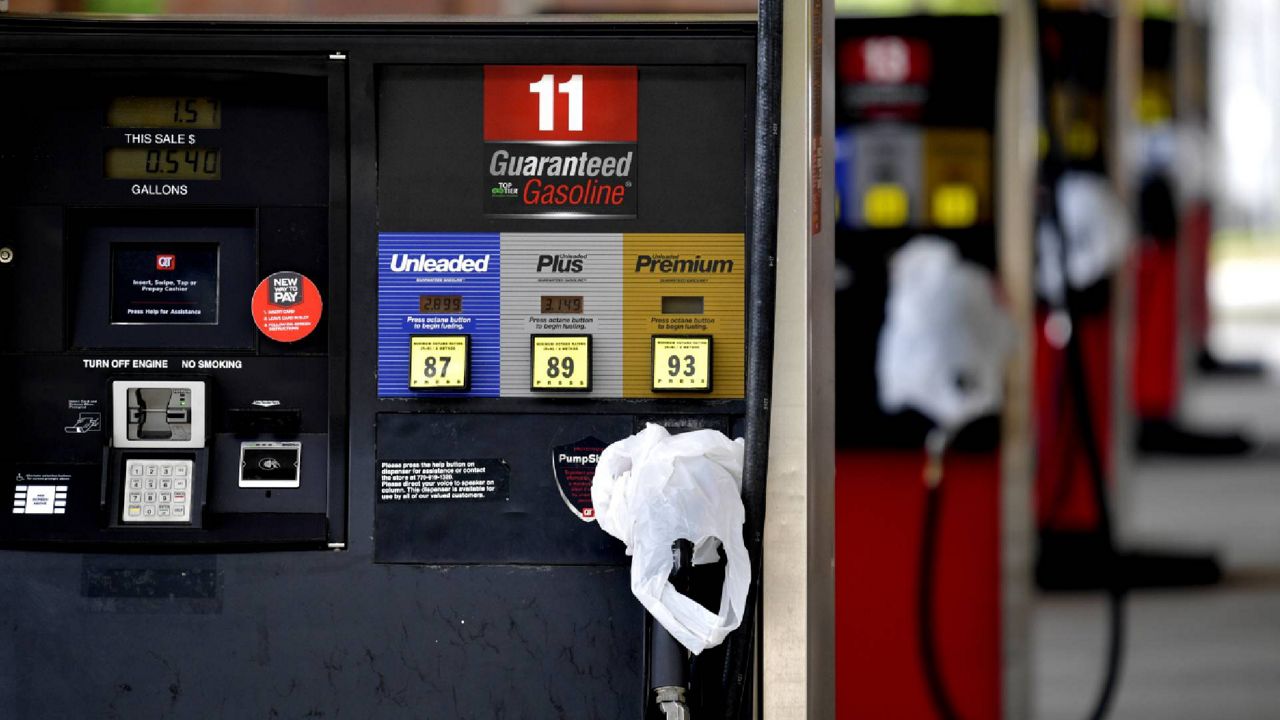Administration officials said Tuesday that they’re monitoring the supply of gasoline throughout the southeastern U.S. and preparing additional sources of fuel if necessary after a cyberattack last week, while also asking Americans not to hoard gas amid a “supply crunch.”
Colonial Pipeline, which supplies about 45% of fuel to the East Coast, preemptively closed its operations after a ransomware attack on Friday, though the company says it expects to be back up and running by the end of this week.
The U.S. is monitoring potential shortages in Georgia, North Carolina, South Carolina, Tennessee and southern Virginia, Department of Energy Secretary Jennifer Granholm said in the White House briefing room Tuesday, though she said there’s no need for alarm yet.
“It's not that we have a gasoline shortage, it's that we have this supply crunch,” Secretary Granholm said. “Things will be back to normal soon, and we're asking people not to hoard and know that we are all over this.”
Granholm said she’s kept in contact with the company’s leadership and governors in the affected states. She acknowledged that restarting operations will be a gradual process once it begins.
In the meantime, the Department of Transportation is reviewing qualified ships that may be able to deliver additional fuel to the southeastern U.S. If needed, the Department of Homeland Security is prepared to issue a Jones Act waiver, Secretary Alejandro Mayorkas said Tuesday, under the law that governs maritime commerce.
“We're going to move at lightning speed,” Mayorkas said at the White House.
For now, the Environmental Protection Agency issued its own fuel waiver that lowers some standards for gasoline distributed in the affected states.
The cyberattack has sparked questions about the security of the country’s critical infrastructure, such as pipelines. On Tuesday, White House press secretary Jen Psaki called the incident a “lesson.”
“We have ensured that there is increased cooperation between the public and private sector,” she said. “But a big lesson from this is the need for all companies to harden their cybersecurity apparatus and to ensure that they are protecting themselves.”
DHS secretary Mayorkas said Tuesday that ransomware attacks are not new and that cybersecurity was a department priority, especially considering increased attacks on small and medium-sized businesses.
“There are different levels of strength and resilience across the critical infrastructure enterprise, and that is why we are so focused on making sure that the cyber hygiene across the entire enterprise is strengthened,” Mayorkas said Tuesday. “One is only as strong as one's weakest link.”
The FBI is investigating the attack on Colonial Pipeline. They confirmed that a group called Darkside, which has Russian links, is responsible, but haven’t pinned any blame on the Russian government so far.



